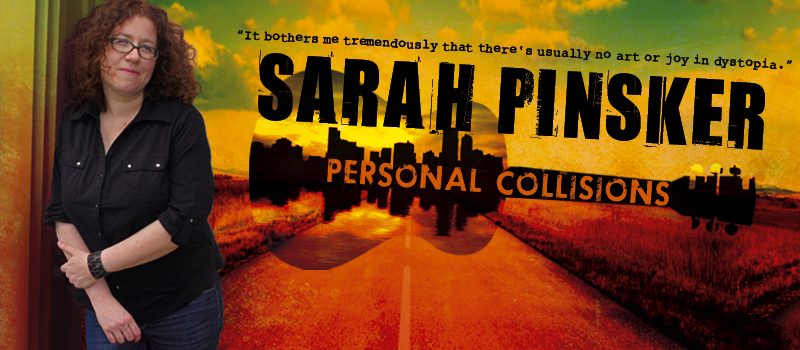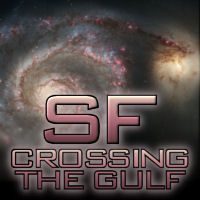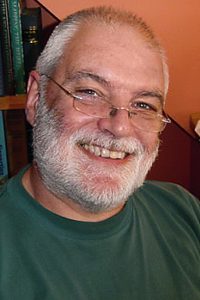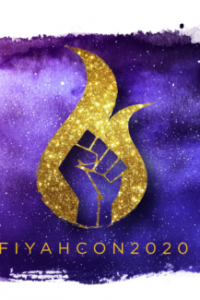Sarah Pinsker: Personal Collisions

Sarah Pinsker was born in New York and lived in various places in the US (including Illinois and Texas) before her family settled in Toronto, Canada when she was 14. She returned to the US for college and has remained here since.
Her first professional sale was “20 Ways the Desert Could Kill You” in 2012. She followed that with Sturgeon Award winning “In Joy, Knowing the Abyss Behind” (2013), also a Nebula Award nominee. She won a Nebula Award for “Our Lady of the Open Road” (2015), also a Sturgeon Award finalist. Other Nebula finalists include “A Stretch of Highway Two Lanes Wide” (2014) and “Sooner or Later Everything Falls Into the Sea” (2016). “Wind Will Rove” (2017) was nominated for Hugo and Nebula Awards; “And Then There Were (N-One) (2017) was a Hugo, Sturgeon, Eugie, and Nebula Award finalist; and “The Court Magician” (2018) was nominated for Hugo, Nebula, and World Fantasy Awards.
Her 50+ stories have appeared in Asimov’s, Strange Horizons, F&SF, Lightspeed, and Uncanny, among others, and numerous anthologies. Some of her short work was collected in Sooner or Later Everything Falls into the Sea: Stories (2019). Her debut novel, A Song for a New Day, is out in September.
Pinsker is also a singer/songwriter and has toured nationally behind three albums on various independent labels. She lives with her wife and dog in Baltimore MD.
Excerpts from the interview:
“My father is a rabbi. He was looking for pulpits or places that were better suited for the family, so we moved and moved again. It was an interesting childhood. It gave me a good grounding in place. I have distinct memories from a lot of ages because I can tie them to locations, certain memories in certain places and certain times, which is useful as a writer. They index well. I liked most of the places. New York City was great for the ages I was there. There was a lot of freedom. By the time I was 14 I was running around Manhattan. I loved New York. I don’t think I want to live there again, but I loved it, and I like being there still – I like the energy of New York. It’s just not the place for me to live anymore.
“I grew up reading – I was reading at three, my mom says. We had great books in the house and they always put good stuff in front of us, and both of my parents are good storytellers, so they told wonderful stories, and we had a fantastic library. Books and music, any time there was anything I ever wanted, I would go and look and it was in this magical library or in this magical collection of music. I’m trying to picture – what I remember was a lot of music in cars. I guess that’s what I remember. I remember my mom’s cassette State of Confusion by The Kinks, which wore out twice in the San Antonio heat, so we had to keep buying that same cassette. There was a great collection of records, and I remember discovering them and putting them on. Everything from the Beatles to Joan Baez to Leonard Cohen to Blondie and the Talking Heads.
“I always wrote. Mostly horse stories when I was little, probably retellings of books I had already read. Everything was horses. I read fantasy, and I remember A Wizard of Earthsea and all of Madeleine L’Engle, but it was a lot of the Walter Farley Black Stallion books, and Misty of Chincoteague, and all of those. Anything with a horse on it, which led me into trouble sometimes, because The Valley of Horses was not, in fact, a horse book. Very interesting. Certainly educational. Also The Red Pony by Steinbeck – not a horse book. I carried a resentment for Steinbeck forward from that moment. I was always reading, and I was always writing. I can’t put start points on either of those things.
“I was always drawn to music too. My parents put me into generic music lessons when I was little. My mother had been forced into piano lessons as a kid, and so she decided her kids would have to ask three times before being allowed to play an actual instrument. You had to show you were serious and it was something you wanted, not something you’d been made to do. I did have to ask multiple times. The first thing I wanted to play was drums, but we were in New York City, so that wasn’t feasible. We got a keyboard instead, and I had a great teacher who was also my teacher at school, and I loved him. He’d play a song for us and say, ‘Check this out, this is what a counter melody does, pick out the bass line for me’ – so he was doing all this stuff to train my ear too. I was not good at piano. I had no feel for it. Then a cousin gave me an electric guitar, and that was it. Guitar and I spoke to each other.
“Writing songs and writing stories are both storytelling. There’s a great challenge in trying to tell a story in three verses and a chorus – if you’re lucky, you get a bridge. When you look at the different lengths of fiction and say, ‘Oh, there’s flash fiction, 1,000 words, how do you fit a story in there?’ You can fit a story into 500 words or into three verses and a chorus if you work. It comes down to word choice, and making every word count – looking for the heart of what you want to say. I wrote short stories through high school, and I wrote songs that were okay, but my stories got shorter and shorter, and I realized I just wanted to be songwriting. I shifted fully over to writing songs toward the end of college. I ended up recording albums, and music happened for a long time, and I wasn’t writing fiction. Then I started finding stories I wanted to tell that took more than the length of a song again. I have trouble going back and forth. I haven’t written a song since the last album I finished. It’s done, but I’m waiting for the right time to release it.
“My storytelling muscle is being exercised enough with the prose stuff. I want to just sit down with a guitar, but I haven’t had time. Am I going to tour the new album? That is an excellent question, and a really stressful one. That’s part of what’s been putting off the release – finding the time between the books. I think there is a way. The first three albums were all on labels, so there was timing and planning and stuff involved there. In point of fact, the new one is finished and I could put it out tomorrow. Maybe I should. I didn’t want to do the label thing again with this one. I just wanted it to exist, more than anything else.
“When everything was controlled by big labels, you weren’t seeing as many different acts. You got the bands the labels thought would make money. There were other bands playing quietly, and an underground scene, but the commercial bands got the radio play and the money and the attention. Then the internet opened up some stuff, and the indie music world has been wonderful. There’s so much out there you can find, but it’s harder to make a living as a band when you’re getting paid 0.000001 cents for every play on a streaming site. BMI and ASCAP still do things, but that money all flows toward the top ten or 20 touring acts, so smaller acts don’t see those pennies. You get statements from your online plays, money from Pandora, Spotify, iTunes, blah blah blah, this whole list of places where people can stream your music. It’s wonderful because they’re streaming your music and you’re excited about that, but it’s not enough to live on. Even when I combined everything, the CD sales and swag and the money at the door, it wasn’t enough to keep my band going. Everyone had day jobs, but if I was willing to live poor, I was able to keep playing. I did college shows – those paid well, and I would do a bunch of college shows in the spring and fall, and that would get me through winter when there were no shows. The second anything went wrong, though, there was no cushion. I had this great college tour where I made thousands of dollars – except that my van broke down in Chippewa Falls WI, and I had to leave the van behind and finish the tour in a friend’s Honda, then fly back to Baltimore, fly back to Chicago, fly to LA, fly back to Baltimore, back to Chicago, take a bus to get my van – and every penny was gone.
“The funny thing that’s happening right now is that with the collection, Sooner or Later Everything Falls into the Sea, coming out, there were a couple of bookstores that said, ‘Hey, we saw that Sarah’s a musician, too. Why don’t we do a mixed show that’s music and reading?’ I’m doing a few shows – I keep calling them ‘shows’ instead of readings, which is a funny way to think about it. One of them is for a bookstore that said, ‘Hey, why don’t you come in, there’s this great club in town, it’s been there for ages, it’s kind of divey, it’s a lot of fun,’ and my publisher Gavin Grant passed it along to me. I said, ‘That’s great, I’d love to play there. I played there ten years ago.’ So I played there again, this time with a guitar in hand and also a book. I had to come up with a show, which is a different challenge. There’s a challenge to coming up with something that works as a narrative. If you’re going to be both reading and playing music, there’s a ‘why’ involved, and a ‘how.’ How do you move between them smoothly, and how much of the show is reading versus music?
“Less is more. I would rather listen to a good 15-minute reading, like a complete story in 15 or 20 minutes, than someone reading 50 minutes of something I could go read myself. There are a lot of musicians I would rather hear do a good, punchy, 30-minute set. A lot of times the opening act’s length of set is really good. Holding attention for a full set takes a lot. You have to be dynamic, have the energy to put out there, be able to banter, all of that. Some people do it better than others. Springsteen can do it – he can stand up there for two-and-a-half hours. I think a 20-minute set of music and a 15-minute reading and a Q&A is a nice evening, and people will feel they got their entertainment for the night. It’s fun figuring out how to make those work together.”
Interview design and photo by Francesca Myman.
Read the full interview in the October 2019 issue of Locus.
 While you are here, please take a moment to support Locus with a one-time or recurring donation. We rely on reader donations to keep the magazine and site going, and would like to keep the site paywall free, but WE NEED YOUR FINANCIAL SUPPORT to continue quality coverage of the science fiction and fantasy field.
While you are here, please take a moment to support Locus with a one-time or recurring donation. We rely on reader donations to keep the magazine and site going, and would like to keep the site paywall free, but WE NEED YOUR FINANCIAL SUPPORT to continue quality coverage of the science fiction and fantasy field.








